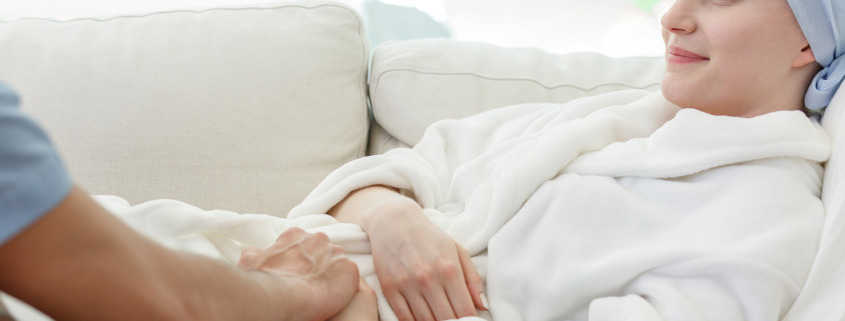What Side Effects Can You Expect from Radiotherapy?
Radiotherapy is used to treat all kinds of cancer. It uses radiation to destroy cancer cells by damaging the DNA of those cells. This radiation is targeted to the site of the tumour to cure or shrink the tumour. The aim is always to direct as much of the radiation as possible at the cancerous cells, with as little affecting the healthy cells surrounding it as possible.
However, while radiotherapy is a targeted treatment, it can still cause side effects in the healthy cells surrounding the cancer. The good news is that these side effects are typically localised to the area of treatment.
There are also some general side effects of radiotherapy to be aware of.
Tiredness
One of the most common side effects of radiotherapy is tiredness. There are many factors that can make you feel tired during your treatment, ranging from how stressed or anxious you feel about it to how far you have to travel for each treatment.
Of course, we can’t forget that your body is working hard to fight the cancer and this in itself can cause fatigue. Your body will also use energy to repair healthy cells following radiotherapy, all of which can contribute to you feeling more tired or lethargic than usual.
You may also find that you feel more tired as your treatment progresses. This is normal, although if you have any concerns you should discuss them with your doctor or radiotherapist.
There are some simple steps you can take to help alleviate your tiredness during your treatment. Drinking plenty of water and staying hydrated is important, as is eating a healthy and balanced diet.
Eating the right diet to support your body before, during and after treatment can minimise the side effects you experience as well as reduce the amount of time it takes you to recover once your course of radiotherapy has finished.
Changes to your eating habits
That said, radiotherapy can sometimes make it difficult for you to eat or drink, or it can make you feel nauseous. This side effect is most common in patients whose radiotherapy treatment is targeted at areas like the head, brain, neck or stomach.
Your radiotherapist will talk to you about the possibility of such side effects before you start your treatment and will ensure you have support to manage this as your course of radiotherapy progresses.
If you do find that eating is difficult during radiotherapy, concentrate on consuming high protein, high energy foods, such as meat, fish, eggs, pulses (like lentils and beans) and dairy products. This will help your body recover, even if you are eating less frequently or smaller amounts than usual.
Sore skin
You may experience soreness on your skin around the area of your treatment. In some cases the skin reddens and in others it can feel itchy or sore. You often won’t notice any skin reactions early in your treatment, but as your radiotherapy course continues they can appear.
It’s important to talk to your radiographer about any skin reactions you experience. In the vast majority of cases, the skin will recover within a few weeks of the treatment finishing. In the meantime, the best advice is to wear loose-fitting items of clothing made from natural fibres and to avoid rubbing the skin in the affected area.
You can still wash it with soap and water, but pat it dry carefully afterwards to avoid damaging the skin further.
What about hair loss?
Many people are concerned about hair loss during their cancer treatment. When you are having radiotherapy, hair loss is usually restricted to the site of the treatment. That means you will more than likely keep the hair on your head, unless this is where your radiotherapy is directed.
There is a chance that your hair may not regrow after your treatment finishes, but your doctor will discuss this with you along with the other side effects you may experience to help you cope and ensure you are prepared for what’s to come.
Emotional side effects
We also can’t overlook the emotional side effects of receiving a cancer diagnosis and going through treatment. These side effects are not restricted to undergoing radiotherapy and can surface at any point during your journey.
It’s important to talk about how you’re feeling both with your doctor and those closest to you. Feeling anxious or scared is normal. At Amethyst we offer psychological support to all of our patients to help them and their loved ones manage the emotional strain of fighting cancer.
Learn more about our advanced radiotherapy and support services on the Amethyst Group website.


